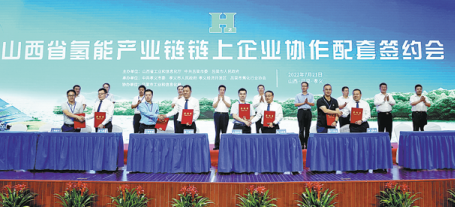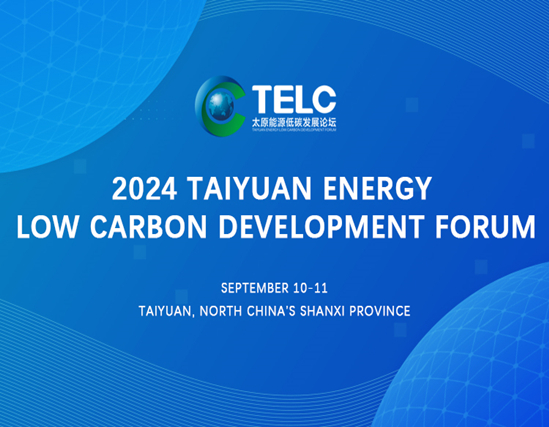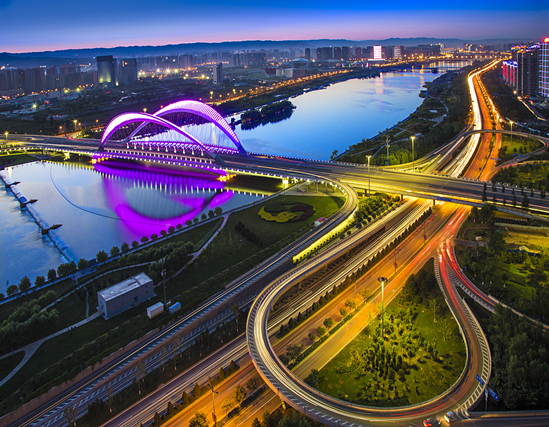Hydrogen fuels leading way in energy revolution
Updated: 2022-07-29

Enterprises from the hydrogen industry sign up to begin operations in the Shanxi city of Lyuliang on July 21. [Photo by Li Shu for China Daily]
Pengfei Group, a company based in the Shanxi city of Lyuliang, broke ground for a plant producing hydrogen-fueled vehicles and components on July 21.
This is regarded by industry insiders as a milestone event in Shanxi as it is the first purely hydrogen-fueled vehicle production facility funded by an indigenous automaker.
On the same day, Lyuliang's first hydrogen-filling station became operational. A staff member of the station said a 30-metric-ton truck can travel about 260 kilometers after being filled with 35 kilograms of hydrogen.
The filling station is part of the industrial chain in the Pengwan Hydrogen Port, a development zone funded by Pengfei in Lyuliang for the hydrogen industry.
One of the zone's major projects, a hydrogen production facility with an annual output of 20,000 tons, was operational earlier this month.
The development of hydrogen is an important part of Shanxi's energy revolution campaign.
In addition to Lyuliang, hydrogen production and other related industries have been developed in other cities like Datong and Taiyuan.
Wu Hongwen, chief of the Shanxi Department of Industry and Information Technology, said Shanxi has its unique advantages in developing the hydrogen industry.
"Hydrogen can be made through water electrolysis and extracting from coal-bed methane," Wu said. "But conversion from coking gas is among the most economical ways."
The official said Shanxi is now the largest coke producer in China and in the world.
"Shanxi can produce 100 million tons of coke a year, the largest in the world," Wu said. "And the coking gas, a side product of coke making, with a hydrogen content of 60 percent, can be used to develop the largest hydrogen production industry in the world."
He estimated that Shanxi's coking plants can produce 14 billion cubic meters of hydrogen a year. If other coke-consuming enterprises are included, the volume can reach 24 billion cubic meters.
Wu noted that, when used as fuel for vehicles, hydrogen can be much cheaper than such conventional fuels as gasoline and diesel.
Pengfei Group, the investor and operator of the Pengwan Hydrogen Port in Lyuliang, is one of the leading hydrogen producers in Shanxi. Its current hydrogen-production plant is said to be the largest such facility in the world.
Another leader in the industry is Meijin Energy based in Taiyuan. It owns a number of cutting-edge technologies in producing hydrogen from coking gas, developing hydrogen fuel cells and manufacturing hydrogen vehicles.
According to Wu, Shanxi province can now produce 27,000 tons of hydrogen a year. And the capacity is expected to increase at an exponential rate with the completion of a number of hydrogen plants.
After the completion of its 20,000-ton hydrogen facility in July, Pengfei plans to invest another 78 billion yuan in the Pengwan Hydrogen Port, according to Zheng Peng, chairman of Pengfei.
"With this investment, Pengwan is expected to produce more than 200,000 tons of hydrogen a year," Zheng said.
Yan Zhongxing contributed to this story.



